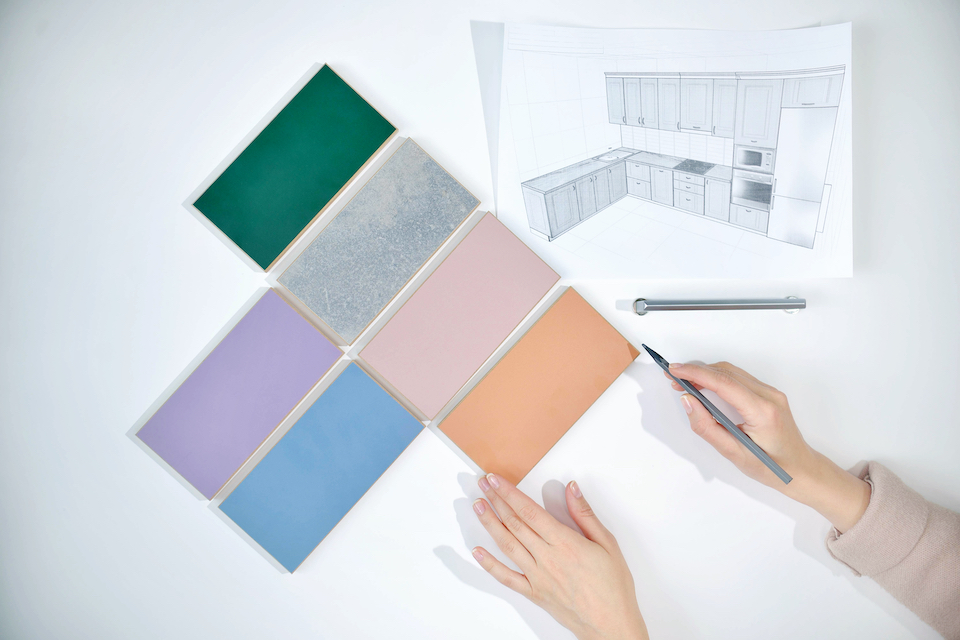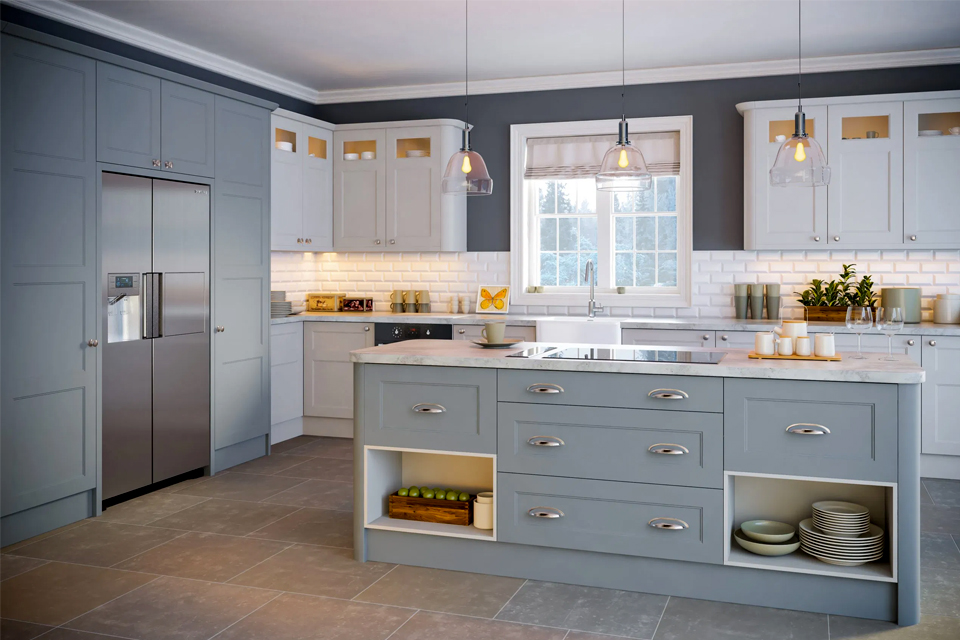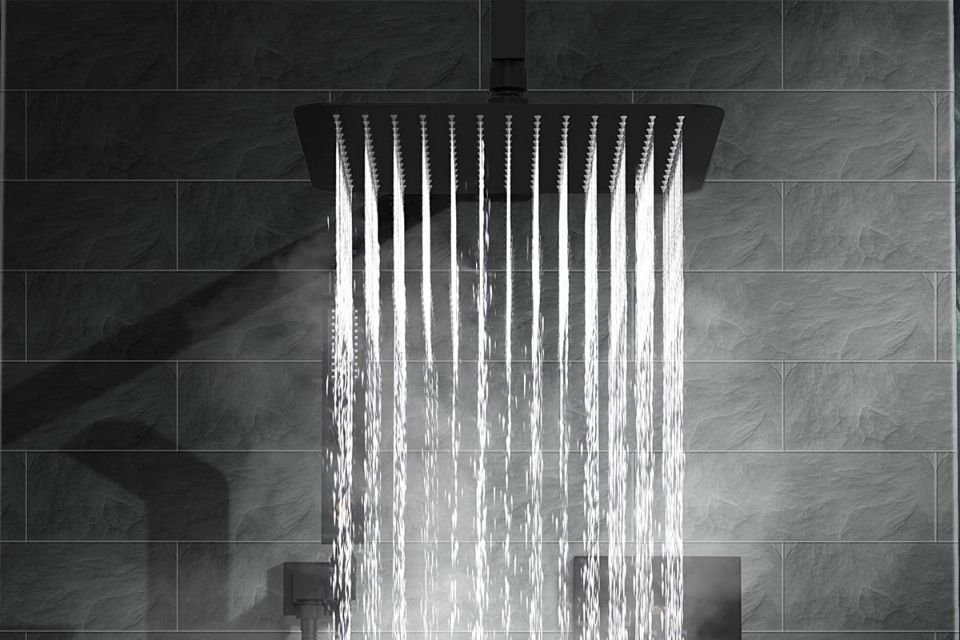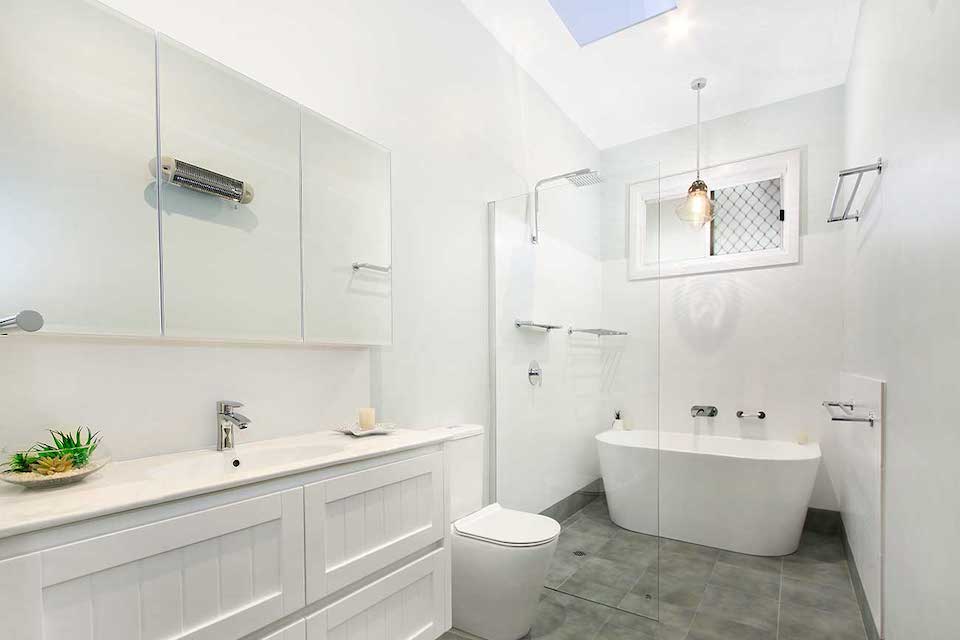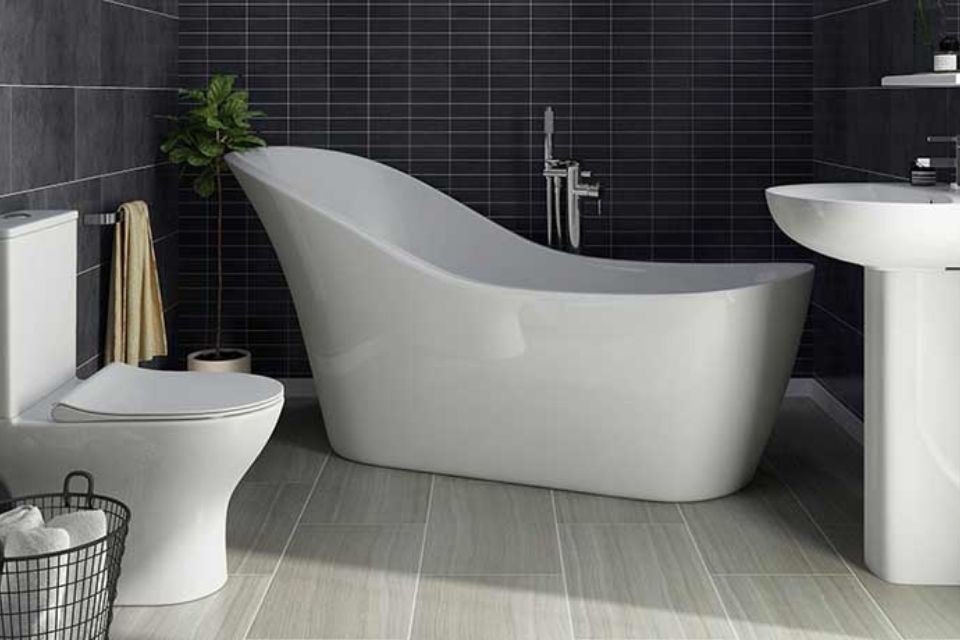How Much Do Corian Worktops Cost to Install?
Corian worktops are durable, non-porous surfaces made from a blend of natural minerals and acrylic resin. They are popular in kitchen upgrades due to their versatility, easy maintenance, and wide range of colours and styles.
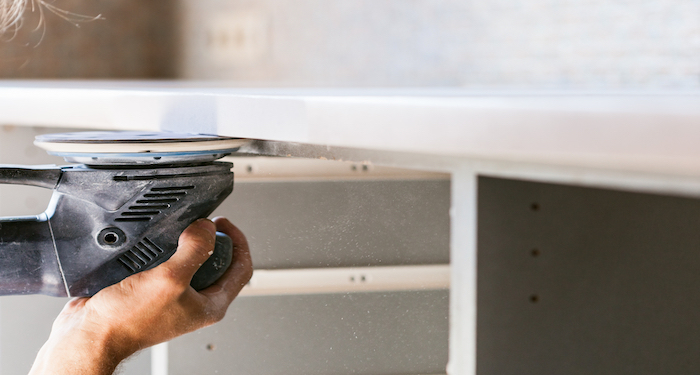
Let's take a look at the costs...
The average cost of having a Corian worktop installed by a professional falls in the range of £1,150 to £2,600for worktop spaces between two and four square metres.
If the Corian worktop is 2m², expect the cost to be roughly £1,150 to £1,400, with the price rising to about £1,650 to £2,000 for a 3m² countertop, and you’d need to budget for about £2,150 to £2,600 for a 4m² worktop.
The total cost of the job will depend on a wide range of factors such as the size, shape, thickness, and colour of the Corian worktop as well as the quality and possibly the brand.
What else do you need to know?
The price of installation will also depend on where exactly in your property the Corian worktop is being fitted, the condition of the existing worktop, the property location, and the number of tradespeople.
How accessible the work area is may also prove a cost factor.
Corian Countertop Price List
| Size | Labour | Supplies | Total Cost |
|---|---|---|---|
| 2m² | £150 to £200 | £1,000 to £1,200 | £1,150 to £1,400 |
| 3m² | £150 to £200 | £1,500 to £1,800 | £1,650 to £2,000 |
| 4m² | £150 to £200 | £2,000 to £2,400 | £2,150 to £2,600 |
- How Much Do Corian Worktops Cost to Install?
- Supply Costs of Corian Worktops
- Additional Costs When Installing Corian Worktops
- What Factors Impact Corian Worktop Costs?
- Labour Cost to Install Corian Worktops
- How Long Does It Take to Install a Corian Worktop?
- Benefits of a Corian Countertop
- How Much Does It Cost to Remove a Corian Worktop?
- FAQs
Supply Costs of Corian Worktops
On average, Corian worktops cost around £400 to £600 per square metre when purchased in-store.
This is roughly equivalent to £35 to £50 per square foot. Since most kitchen worktops cover several square metres, the total material cost for a Corian worktop typically ranges from £1,500 to £1,800 for an area of approximately three square metres.
Keep in mind, this is the supply-only price. If you hire a professional to replace your kitchen worktop, you’ll also need to budget for labour and any additional charges, which will increase the overall cost.
Additional Costs When Installing Corian Worktops
There are many added costs that you may choose to incur along with having a countertop installed. Of course, some added expenses that you may incur one way or another (but more on that shortly).
New Splashbacks
Adding new splashbacks alongside your Corian worktop is a common upgrade that enhances both the functionality and look of your kitchen. Corian splashbacks create a seamless, easy-to-clean surface with no visible grout lines, which is particularly popular in modern designs.
There are 2 standard types of splashbacks available:
- Full-Height Splashbacks: These run from the worktop to the underside of wall cabinets or even to the ceiling.
- Upstands: Low-profile splashbacks, usually around 100mm high, that protect the wall behind worktops.
The costs of installing a new splashback will depend on the size of the area needing to be covered, the thickness of the material, if cutouts are required and the type of finishing details you want on the edges.
Installation of splashbacks is usually done at the same time as your worktop to ensure a perfect fit. This may require you to remove any old tiles or the existing splashbacks, which will cost you more in labour charges.
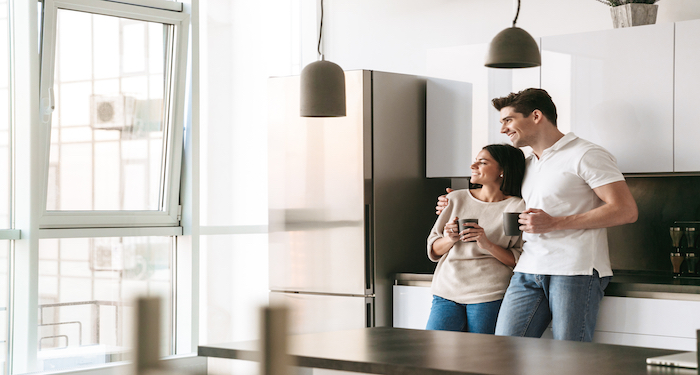
Integrated Sink
As part of your kitchen upgrade, you may also consider adding a new integrated sink. These can be made from the same material as your worktop, with it blending seamlessly into the surface, creating a sleek and continuous appearance.
These types of sinks not only look high-end but also make cleaning easier, as there are no gaps for dirt or bacteria to collect.
Choose from a standard single bowl sink with drainer or a double bowl option, which are ideal for larger kitchens or utility areas.
Changes to your plumbing connections may be required, which could add to the cost.
Cooker Installation
To add to your new look kitchen, you may wish to have a new cooker installed.
If you’re integrating a cooker into your Corian worktop, additional cutting, shaping, and heat protection measures may be required, which can increase the labour costs.
Specialist tools are often needed to achieve a precise and seamless fit, especially for flush or inset installations.
The cost will also depend on whether the cooker is electric, gas, or dual fuel, as each type may require different connection services. Gas installations, for example, must be carried out by a Gas Safe registered engineer, which may increase costs further.
On average, cooker installation can cost anywhere from £150 to £300, but prices may be higher for complex installations or premium appliances.
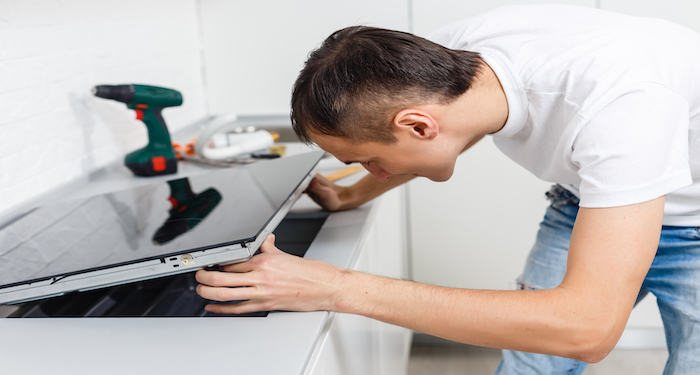
What Factors Impact Corian Worktop Costs?
Let's look at some other cost affecting factors you may have.
Minimum Fees
Many contractors have a minimum charge for their services. Even if the job appears small, you may still be required to meet this base rate, which covers travel, labour, and time commitments.
Excess Mileage Charges
If you live in a remote or hard-to-reach location, some contractors may apply additional fees to cover the extra travel distance. This is especially common if you hire a specialist from outside your local area.
Condition of the Existing Worktop
Removing your old or damaged worktop can sometimes involve unexpected labour charges. If the current worktop is difficult to detach or if there’s underlying structural damage, extra work may be necessary to prepare the surface for installation, leading to increased costs.
Installation Complexity
The complexity of the installation process will also affect pricing. Worktops that require special adjustments, cutouts for sinks or appliances, or intricate edge profiles often demand more time and precision, which can increase labour charges.
By considering these potential expenses in advance, you can better plan your budget and avoid unexpected costs during your worktop installation project.
Labour Cost to Install Corian Worktops
So, what about the cost of labour?...
Well, as shown earlier, the tradesmen's cost of fitting a Corian worktop tends to come to about £150 to £200; this is the same cost of a daily labour fee. In general, you can expect this work to likely last between four and ten hours (or about half a day to a full day's work).
For that reason, it’s possible that you could end up paying around £100 or less in labour expenses, but in most cases, it will be close to the price of a full day of work.
The cost of labour can differ depending on where you live, given that labourers charge different rates throughout the UK.
On average, tradesmen costs tend to be above the national average in the southeast of England (especially in London, which is one of the most expensive parts of the country for labour fees), while they are generally below the UK average in northern England, Scotland, and Northern Ireland.
If you are having sinks or cookers moved or replaced as part of the project you will potentially also need a plumber, electrician or a gas safety engineer to help complete the project ready for use.
How Long Does It Take to Install a Corian Worktop?
The duration of the job will depend primarily on the size of the kitchen/installation area and the size, type, and quality of the worktop itself.
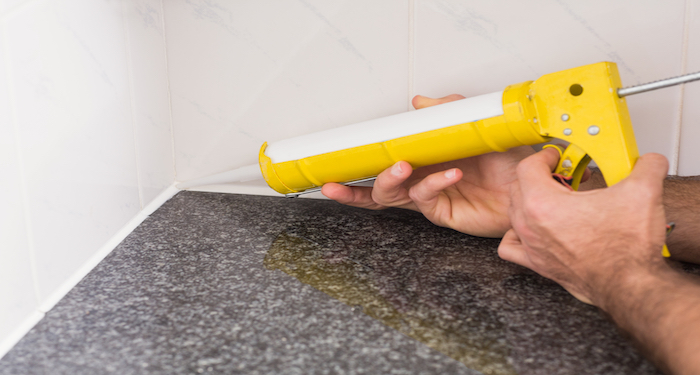
With one tradesperson on the job, expect it to take:
- 4-5 hours for a small kitchen
- 6-7 hours for a medium kitchen
- 8-10 hours for a large kitchen
These are approximations because, of course, the size of the kitchen may not be directly correlated with the size of the Corian worktop installation.
The timeframe will depend on factors such as:
- Ease of access
- The state of the work area
- Removal of the old worktop
- Number of tradespeople hired
If two labourers are on the job, for example, the work duration will likely be cut in half. That said, it would be pretty rare for any more than one tradesperson to take on this task.
Benefits of a Corian Countertop
There are many notable advantages to Corian countertops worth considering.
Durable & Long-lasting
First and foremost, Corian worktops with solid surface countertops, in general, are more durable than alternative surface materials such as wood, soapstone, or paper-based composites.
Stain Resistant & More Hygienic
Corian worktops are also non-porous, which means they are highly resistant to stains, moisture, and bacterial growth. This makes them not only more hygienic but also easier to maintain over time, as spills and liquids cannot penetrate the surface. In contrast, materials like wood or soapstone may require regular sealing or oiling to prevent damage from moisture or heat exposure.
Easy to Clean
With a smooth surface, a Corian worktop is straightforward to clean. Spills can be easily dealt with without the need for too much elbow grease.
In the long run, this will help in maintaining the quality of the surface with fewer products and pressure being applied to a Corian surface than might be the case with another type of worktop.
Impact Resistant
Another key advantage of Corian is its resilience against impacts and scratches. While no surface is entirely immune to damage, Corian is far less prone to chipping, cracking, or warping compared to more fragile options. Even if minor scratches or marks occur, Corian worktops can often be restored to their original condition through simple sanding or polishing—a process not always possible with natural stone or wood surfaces.
Heat Resistant
Corian is heat resistant to a reasonable degree. This makes it ideal for kitchen worktops as it withstands typical kitchen conditions without immediate risk of scorching or burning. However, as with any surface, using trivets or heat pads is recommended for extremely hot pots and pans.
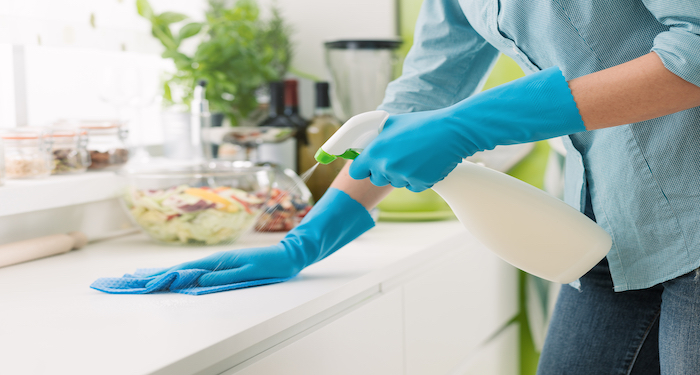
Many Corian Worktop Colours
Corian worktops tend to be available in a whole host of colours and the range is greater than would be the case with many other materials.
This is great because you have a better range to pick a colour that matches your preferences and complements your kitchen cupboards and the colours in particular that surround the worktop. That’s good news for those who prioritise having a particular interior design.
How Much Does It Cost to Remove a Corian Worktop?
You may want to simply have an old Corian worktop removed (or remove a new Corian worktop at a later date), whether to be replaced with a new worktop or to give away to something else. That said, you may also choose to simply remove the worktop and the area it is placed on to free up space.
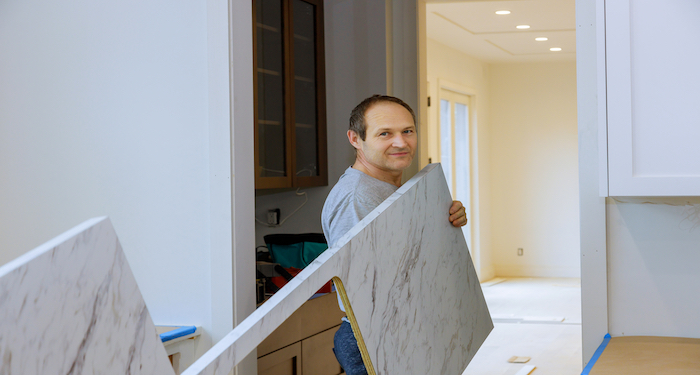
Simply removing a Corian worktop may cost £100 to £300, depending on how long the job takes and the size of the worktop being removed (in relation to the cost of waste removal, such as if you were to hire a skip).
FAQs
Q: How do you clean a Corian worktop?
A: In most cases, an ammonia-based householder cleaner (you could also use a dedicated countertop cleaner if you prefer) and warm soapy water would suffice. You should clean in a circular motion. However, you should steer away from window cleaners.
Q: What is a Corian worktop made of?
A: Corian worktops are made from a combination of natural minerals and acrylic polymer, resulting in a strong, versatile solid surface material. Specifically, Corian is composed of approximately two-thirds natural minerals and one-third acrylic resin (also known as polymethyl methacrylate or PMMA).
The primary mineral component is Alumina Trihydrate (ATH). Alumina Trihydrate plays a crucial role in giving Corian its smooth texture, durability, and fire-retardant properties. It also contributes to the material’s non-porous nature.
Q: What is the average thickness of a Corian worktop?
A: The typical thickness of a Corian worktop is generally around 38mm (approximately 1.5 inches). However, the actual thickness can vary depending on the specific product, design preferences, and installation method.
Standard Corian sheets are usually manufactured in thicknesses of 6mm, 12mm, and sometimes up to 19mm. During installation, these sheets are often bonded to create a thicker, more substantial-looking edge, giving the appearance of a thicker worktop, often around the 30mm to 50mm range, with 38mm being one of the most common finished dimensions.
Q: Is it okay to cut food directly on a worktop surface?
A: While Corian worktops are known for their durability and resistance to everyday wear, it is not recommended to cut food directly on the surface. Although the material can withstand occasional minor contact with sharp objects, cutting directly on the worktop may cause scratches, dull spots, or surface damage over time.
To maintain the appearance and integrity of your Corian worktop, it’s always best to use a chopping board when preparing food.
Q: Will Corian countertop joints be perceptible?
A: In most cases, the joints on Corian countertops are virtually seamless and difficult to see. One of the key advantages of Corian is its ability to be joined with a special adhesive that creates a smooth, continuous surface once professionally sanded and finished. This seamless appearance is one of the reasons Corian is popular in kitchens and bathrooms.
However, on very light-toned or solid-colour worktops, you may occasionally notice a faint line where two pieces meet, especially under certain lighting conditions or at specific viewing angles. Even so, these joints are typically very narrow and subtle, and most homeowners find them barely noticeable.

